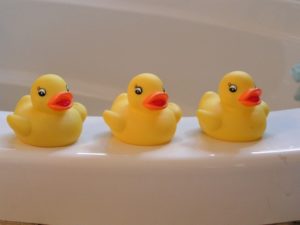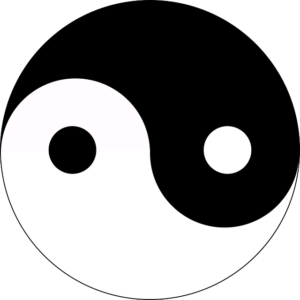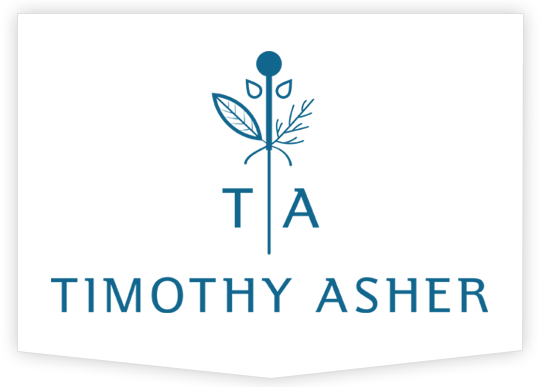The Equation of You: Calculating Health and Happiness
 The way we live plays a big part in our health and happiness. Picture a complex equation from high school – imagine your favorite algebra or calculus formula. Just like these calculations, our current state of health and happiness is a complex equation made up of common variables. These variables include the following attributes:
The way we live plays a big part in our health and happiness. Picture a complex equation from high school – imagine your favorite algebra or calculus formula. Just like these calculations, our current state of health and happiness is a complex equation made up of common variables. These variables include the following attributes:
- Ancestry and genetics
- Diet
- Medicines, herbs, supplements, and vitamins
- Exercise habits
- Sleep habits
- Self-care patterns
- Stress and stress management habits
- Intellectual stimulation and creative expression
- Emotions and thought patterns
- Relationships and interactions
- Climate and environment
All of these things add up to you, whether it’s something you can change or something fixed like genetics. If the current you is having some sort of health or mood issue, we need to look at adjusting some of the inputs to rebalance the equation to one of perfect health, or at least better health with less severe symptoms.
Zoning in on the Variables
Let’s look at each of the variables in more detail to see what we can do to re-balance the equation:
Genetics and Epigenetics

Yes genetics are fixed, but how they express is highly variable.
Each cell in our bodies contains 23 pairs of chromosomes. One chromosome from each pair is from the father and the other from the mother. There are two kinds of genes, dominant and recessive. When combined, the dominant gene prevails. For instance, brown eyes are dominant while blue eyes are recessive. If you receive one blue chromosome from your father and a brown from your mother, you will have brown eyes.
This same inheritance also happens with disease conditions. Diseases tend to run in families. While this may sound like it’s fixed and unchangeable, it’s not at all. I prefer to see it as the blueprints or patterns for a disease are passed through genetics. We may have a higher likelihood to have the same disease conditions as our parents, but how we balance the other variables below plays an enormous role in whether that disease actually manifests in our system. In fact the field of epigenetics studies just this: How external factors (i.e many of the variables of our equation e.g. diet, exercise, stress, etc.) can actually turn off or on a gene that causes a specific disease pattern.
Healthy Diet

Diet is an area where we have a lot of control in adjusting the variables.
This is an area that we can do a lot of shifting in the equation. We get to choose what we put in our bodies. We also get to choose when and how we eat. All of these can have a powerful impact on the whole. In general I recommend people eat only fresh organic whole foods, mostly from vegetable sources. If you want more specifics and haven’t read Food Rules: An Eater’s Manual by Michael Pollan, I HIGHLY recommend it. Generally cutting down on heavy foods like fried foods, meat, and dairy, as well as refined sugar, flour, caffeine and alcohol are a great place to start. Also don’t overeat, and eat dinner earlier so you aren’t sleeping with a full stomach. And never eat on the run or when stressed.
Medicine, Herbs, Supplements, and Vitamins

I always suggest working with herbs and natural supplements first, before resorting to a pharmaceutical medication.

Movement is crucial to health. It doesn’t have to mean going to a gym. Just walking around the block is a good start.
Movement and Exercise Habits
Regular physical activity controls weight, improves our mood, combats health conditions like heart disease, boosts our energy levels, helps us sleep better, and even improves our sex lives. Try to do an intensity aerobic activity, such as cycling, swimming, dancing, or fast walking, for at least half an hour a day. Find an activity that you enjoy so it will be easier to maintain momentum in the long-term. But regular exercise doesn’t have to be going to a gym and sweating for an hour. It can be things as simple as getting up from your desk and stretching once every hour, or going for a walk around the block a few times a day. Even if you can’t walk, do something to move however you can. Anything to move the body will help! If you haven’t seen the 23 1/2 Hours video on Youtube, it’s a great one.
Sleep Habits

Getting to bed by 10pm makes a HUGE difference in my mood and energy. Try it!
Self-Care Patterns

Rubber ducky or not, taking a bath is like a healthy martini! It is so relaxing and therapeutic.
Stress Management

Acupuncture and Chinese medicine are rooted in the balance of Yin and Yang, and be wonderful to help balance the “equation of you”.
Avoiding situations that make your blood boil can be difficult, but sometimes we need to make hard decisions for our own well-being, like quitting a demanding job or unhealthy relationship, saying no to helping people, shopping at a different time when it’s not so busy, or avoiding traffic during peak times. Find out what the triggers are that raise your stress levels and start to avoid them.
Healthy Mind, Intellectual Stimulation, and Creative Expression
Making sure you have outlets for creative expression and intellectual stimulation is important for the health of the overall equation as well. But also making sure it’s done in a balanced way. Sometimes you need to challenge yourself intellectually, and other times you need to let your mind rest. Find the balance between intelligent conversations, alone time in your own mind, and just mindless fun and enjoyment.
Thought Patterns and Emotions
Our thought patterns also influence our health. If we have limiting thought patterns or beliefs about health, or disease outcomes, that only reinforces them in us. For example, if we are told that because our parents have diabetes, that we will definitely have it as well, and there is nothing we can do about it, this will go a long way to reinforcing this physical reality in our body. When we maintain a positive mental attitude and open to all possibilities and outcomes, we expand what is possible for us and our health.
Emotions also play an important role in health. These are some most difficult things to deal with. I mean we can’t force ourselves to be happy when we are sad or angry. But what we can do is allow ourselves to fully experience whatever emotion we are feeling, so that it can move through us and not get stuck in us. When we fully release emotions, we have a much easier time finding peace and joy. Meditation and quiet time alone are essential for this. And if you feel like emotions are holding you hostage, or you just can’t get in touch with them, seek professional help.
We can also get to know ourselves on a deep level, and discover and understand what are the things in life that make us happy and joyful. And then we can choose to do more of those. Things that make us happy and joyful are incredible medicine for the body, mind, and spirit.
Relationships and Interactions

Relationships aren’t just of the human kind.
Climate and Environment
This is another one that people often overlook as having an impact on our health. The climate we live in plays an important role in both physical and mental health. Where I live in San Francisco, we get a lot of fog and wind. This moist, damp, and often blustery climate can bring out joint pain and cause lots of colds and flus, and low energy and depressed moods. But it never gets hot here, so people that overheat easily in sweltering summer temperatures love it here. This is harder to adjust as a variable, but it shouldn’t be ruled out as a possibility.
Taking Charge of the Equation of You

These are just some of the common variables that most of us have in our lives. If you are working on some sort of health condition, an adjustment of any one of these variables, even if it seems unrelated, can affect your whole physical and mental health. When we adjust one variable, it often leads to positive adjustments in other ones too. This results in an equation that adds up to a healthier, happier, and more thriving YOU. When all the variables in the equation are in balance, we have a greater ability to focus, take productive actions, and reach our personal and career goals.
If your equation needs some adjustment, tackle one variable at a time – don’t try to change everything at once. This can lead to overwhelm and is counterproductive. Start with small changes and remind yourself why you are doing it: to be healthier and happier!
If you need any help balancing things in your life, feel free to reach out. I’d love to talk to you.





